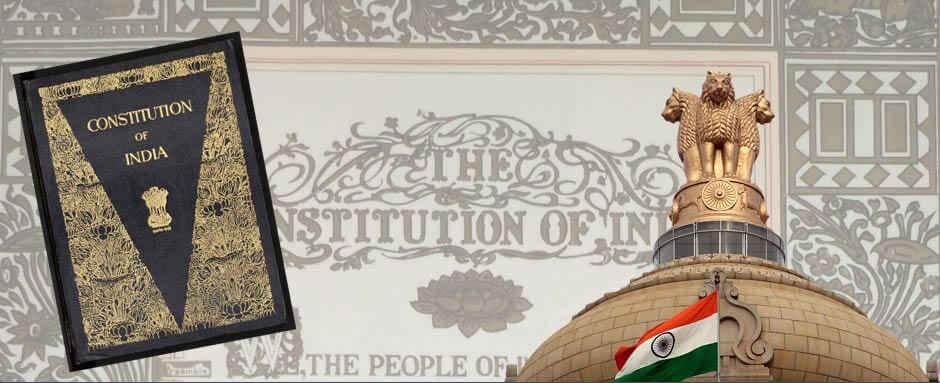Latest News
IR Coeloh vs The State of Tamil Nadu

IR Coelho vs The State of Tamil Nadu, also referred to as the "Ninth Schedule Case", this unanimous judgement delivered by a 9-judge bench led by Judge Sabharwal upheld the validity of the "Doctrine of Basic Structure" propounded within the 'Kesavananda Bharti' case. Moreover, the Court also upheld the dominion of the Judiciary to review any such law which in its opinion would in any way destroy the basic or basic structure of the Constitution. Thus in effect, this case put an end to any controversy that was left behind regarding the validity and implementation of the basic structure doctrine.
The case arose due to the reference made by a 5-judge Constitution Bench in 1999 after the Gudalur Janmam Estates (Abolition and Conversion into Ryotwari) Act, 1969 was struck down by the Supreme Court in the case of Balmadies Plantations Ltd. & Anr. v. State of Tamil Nadu .
• The Constitution Bench, in its referral, noted that consistent with the Waman Rao Case, insertion of amendments within the Constitution after the Kesavananda Bharti case by inserting new laws into the "Ninth Schedule", are often challenged on the bottom that they're violative of the Fundamental Rights provided in Articles 14, 19 and 31.
• Therefore, the referral asked the 9-judge bench to re-look into the Waman Rao judgement and determine whether it must be overruled or not.
Issue before the Court:
• The basic issue before the Court was whether it had been permissible for the Parliament to insert laws into the "Ninth Schedule" post-Kesavananda Bharati case so as to form them immune from review on the purveiw of the basic structure doctrine.
• It is pertinent to say here that since the "Ninth Schedule" was inserted, various pieces of agrarian reform legislation were placed in it but with the arrival of your time, various other pieces of legislation were arbitrarily and indiscriminately placed within the "Ninth Schedule" to form them immune from review despite the very fact that the majority of them had nothing to do with the agrarian or socio-economic reforms.
• It was amply clear that the legislature within the guise of the "Ninth Schedule" was trying to flee not only the restrictions imposed by the basic structure doctrine but also by-pass the review of legislation that were manifestly ultra-vires to the Constitution.
Ruling:
The Court unanimously held that it had been not permissible for the legislature to flee the scrutiny of the basic Structure doctrine by finding manifestly cunning ways to urge around it.
• The 'Basic Structure Doctrine' is that the very essence of the Constitution and any acts, rules and regulations that violate its essence can't be allowed to continue in brazen manner.
• If any laws within the "Ninth Schedule" were inconsistent with Part III, they're susceptible to be struck down by the Court.
• The "Ninth Schedule" was a sub part of the Constitution and intrinsically any alterations made to those parts which by-pass the restrictions that are in situation that can't be allowed to still the detriment of well-established principles.
• These insertions into the "Ninth Schedule" are an effort to invade into the sphere of fundamental rights and intrinsically these invasions need to be addressed so as to preserve inherent rights.
The Court also delved upon the importance of the facility of review – the importance of which was made abundantly clear by the Court in Gandhi v Raj Narain.
• Any new amendment or alteration within the Constitution is to be tested on its own merits so as to work out whether such a change is violative of the basic features of the Constitution.
• The fundamental rights chapter was added within the Constitution so as to stay a check on the powers of the State and confirm that the State doesn't twiddle the individual rights during a manner that's contrary to the basic setup of the fundamental rights.
• The power of review bestowed upon the Courts may be a check on the aforesaid attempts of the State to chip away at at the fundamental rights within the Constitution.
Coelho Case Judgement Criticism:
This judgement was criticised for further solidifying the concept of basic structure which has no textual basis within the Constitution.
• Critics argue that such judgements are chipping away at the facility of the legislature to enact laws so as to further their legitimate policies.
• Every now then the Court keeps on adding new principles as a part of the basic structure, thus hampering not only the legislature but also paving the way for brand spanking new litigation which only adds to the vagueness and confusion that has always surrounded the 'basic structure doctrine'.
• Till date, the judiciary has neither given any exhaustive definition of the basic structure nor has it given an exhaustive list which constitutes the basic structure of the Indian Constitution.
• Justice Mathew, within the Gandhi case, had perceptively stated that ‘the Concept of Basic Structure' as a brooding omnipresence within the sky aside from specific provisions of the Constitution is just too vague and indefinite to supply a yardstick for the validity of a standard law.
Conclusion:
The I R Coelho case has further strengthened the hold of the 'Basic Structure Doctrine' within the constitutional setup of the country by emphasising that each one amendments, counting on its impact and consequences if violative of the doctrine of the basic structure, got to be struck down. The legislatures cannot act with impunity by using concepts of federalism and state to usher in legislation to fulfil their ulterior motives of invading upon fundamental rights.
Document:



































































































